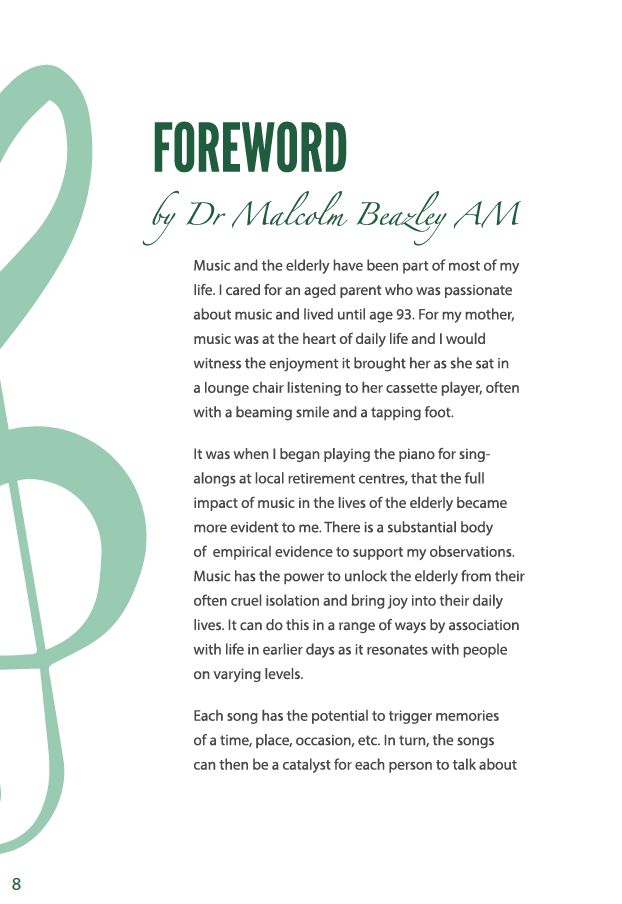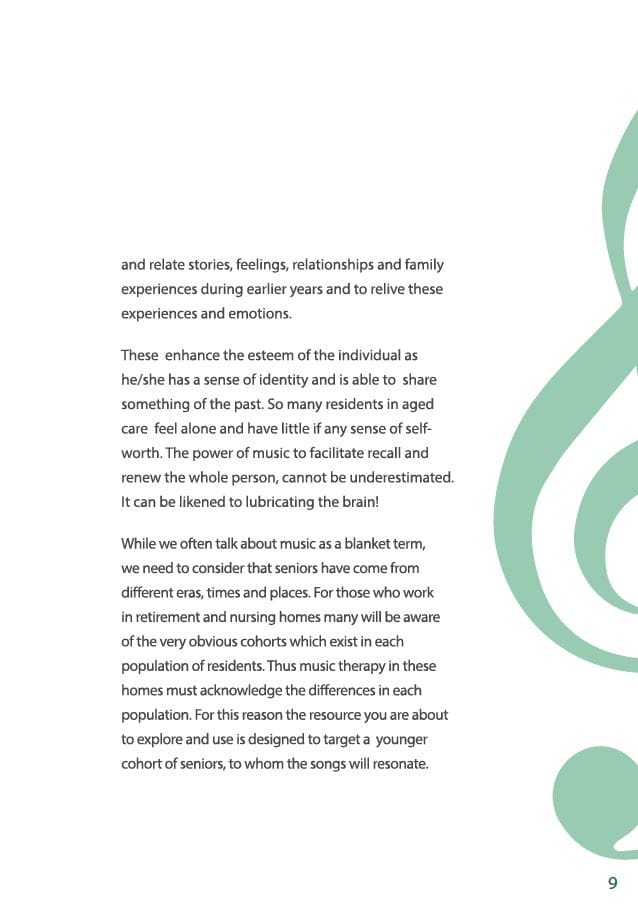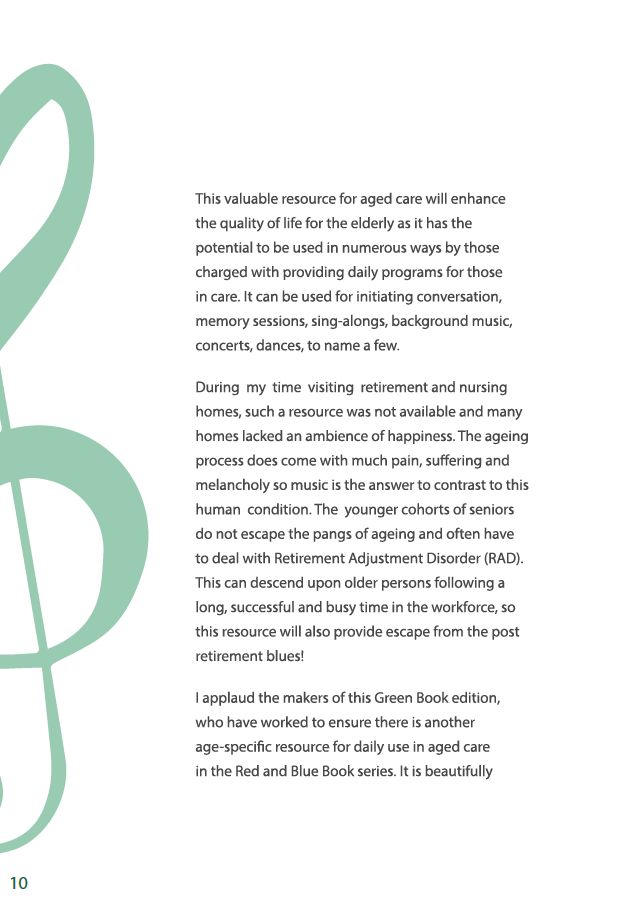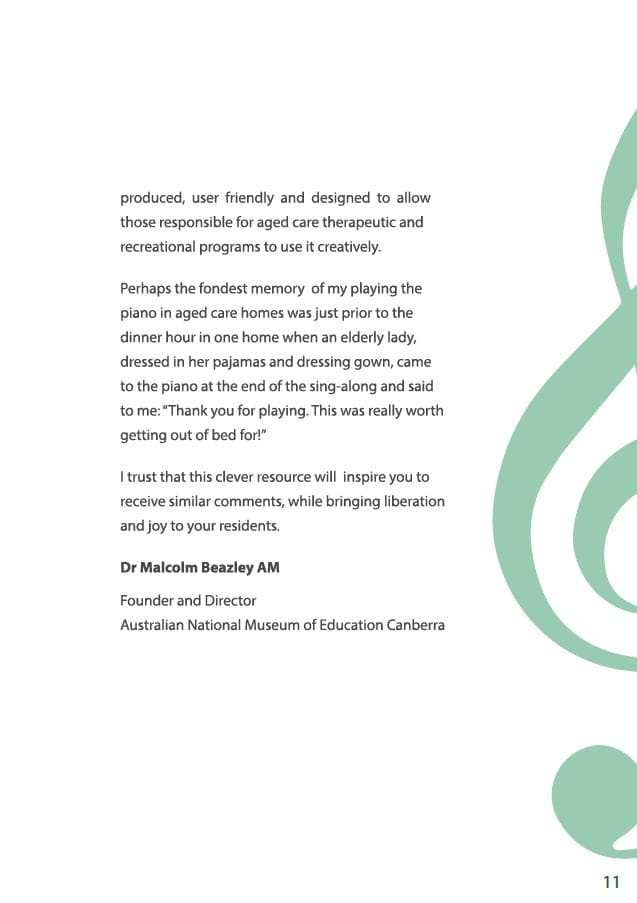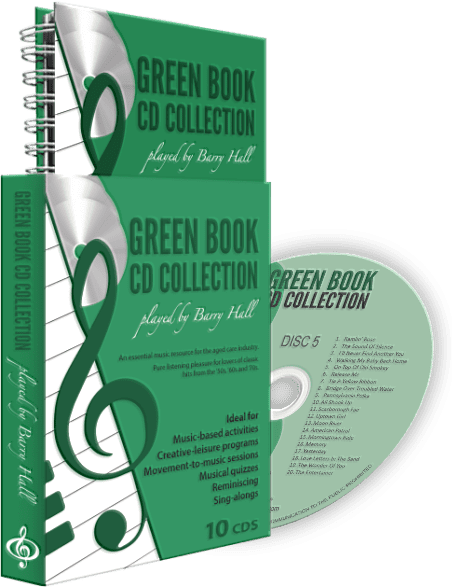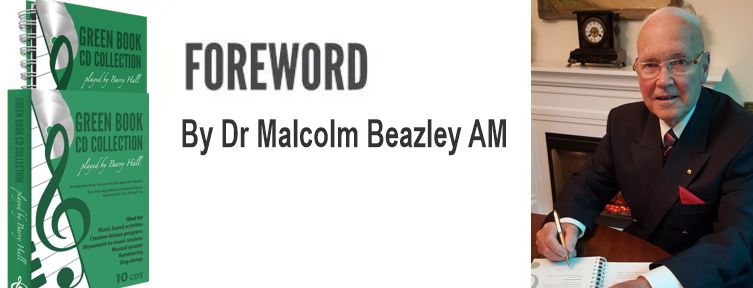
Green Book CD Collection
Green Book CD Collection has become recognised as a premium activities resource which caters specifically for the needs of the Baby Boomer generation. The 200 tunes in this 10-CD collection are popular favourites from the Golden Oldies era spanning the 1950s, ’60s and ’70s.
Community singing groups, Senior Citizens Centres and aged care facilities alike, will appreciate the value of this CD collection, in providing a simple way to teach songs, facilitate sing-alongs on bus trips, provide music for movement, or background music to happy hour drinks or parties – the list is limited only by your imagination.
Ten Music CDs:
The music on the discs in this 10 CD collection contains music from the 1950s through to the 1970s, featuring artists such as The Beetles, ABBA, The seekers, Elvis, Tom Jones, Neil Diamond, Chubby Checker with his ‘Let’s Twist Again, and so many more great favourites from that time.
Green Book CD Collection Foreword Written by Dr Malcolm Beazley AM
Music and the elderly have been part of most of my life. Having cared for an aged parent, who was passionate about music and lived until 93, music was always at the heart of her daily life. As she sat in lounge chair listening to her cassette player, often with a beaming smile and a tap of the foot, I could witness the enjoyment music was bringing to her. It was when I began playing the piano for sing-a-longs at local retirement centres, that the full impact of music in the lives of the elderly became more evident to me. There is a substantial body of empirical evidence to support my observations. Music has the power to unlock the elderly from their often cruel isolation and bring joy into their daily lives. It can do this in a range of ways by association with life in earlier days, as it resonates with people on varying levels. Each song has the potential to trigger memories of a time, place, occasion, etc. In turn, the songs can then be a
catalyst for each person to talk about and relate stories, feelings, relationships and family experiences during earlier years and to relive these experiences and emotions. These enhance the esteem of the individual as he/she has a sense of identity and is able to share something of the past. So many residents in aged care feel alone and have little if any sense of self-worth. The power of music to facilitate recall and renew the whole person, cannot be underestimated. It can be likened to lubricating the brain!
While we often talk about music as a blanket term, we need to consider that seniors have come from different eras, times and places. For those who work in retirement and nursing home many will be aware of the very obvious cohorts, which exist in each population of residents. Thus music therapy in these homes must acknowledge the differences in each population. For this reason the resource you are about to explore and use is designed to target a younger cohort of seniors, to whom the songs will resonate.
This valuable resource for aged care will enhance the quality of life for the elderly as it has the potential to be used in numerous ways by those charged with providing daily programs for those in care. It can be used for initiating conversation, memory sessions, sing-a-longs, background music, concerts, dances, to name a few. During my time visiting retirement and nursing homes such a resource was not available and many homes lacked an ambience of happiness. The ageing process does come with much, pain, suffering and melancholy so music is the answer to contrast to this human condition. The younger cohorts of seniors do not escape the pangs of ageing and often have to deal with Retirement Adjustment Disorder (RAD), which can descend upon older persons following a long, successful and busy time in the workforce so this resource will also provide escape from the post retirement blues!
I applaud the makers of this Green Book edition, who have worked to ensure there is another age specific resource for daily use in aged care in the Red and Blue Book series. It is beautifully produced, user friendly and designed to allow those responsible for aged care therapeutic and recreational programs to use it creatively. Perhaps the fondest memory of my playing the piano in aged care homes was just prior to the dinner hour in one home when an elderly lady, dressed in her pajamas and dressing gown, came to the piano at the end of the sing-a-long and said to me: “Thank you for playing. This was really worth getting out of bed for!” I trust that this clever resource will inspire you to receive similar comments, while bringing liberation and joy to your residents.
Dr Malcolm Beazley AM
Founder and Director
Australian National Museum of Education
Canberra
Foreword As It Appears In The Green Book CD Collection
